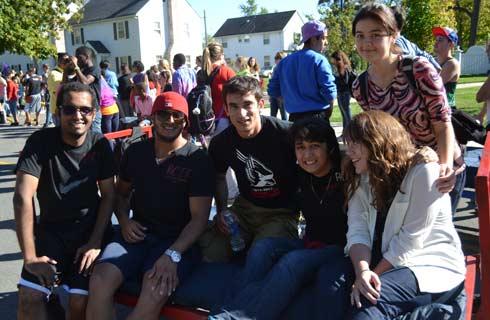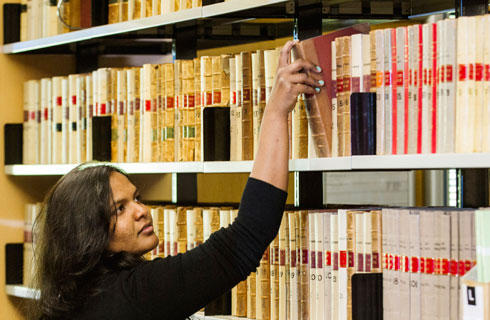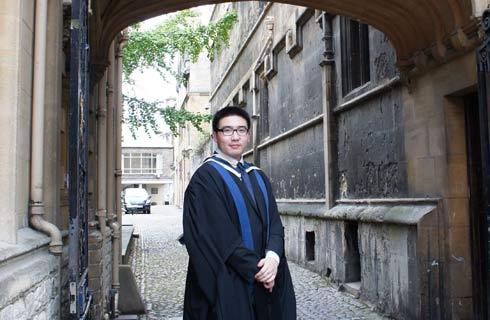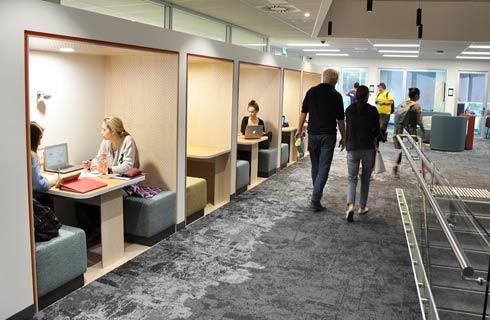PGCert Audiences, Engagement, Participation

学历文凭
Graduate Certificate

专业院系
School of Performance and Cultural Industries

开学时间

课程时长

课程学费

国际学生入学条件
IDP—雅思考试联合主办方

雅思考试总分
6.5
了解更多
雅思考试指南
- 雅思总分:6.5
- 托福网考总分:88
- 托福笔试总分:160
- 其他语言考试:PTE - 64 overall and no less than 60 in any component.
CRICOS代码:
申请截止日期: 请与IDP顾问联系以获取详细信息。
课程简介
相关申请
 预科
预科 奖学金
奖学金 实习机会
实习机会 在校学习
在校学习 跨境学习
跨境学习 校园授课-线上开始
校园授课-线上开始 在线/远程学习
在线/远程学习
学校排名

世界排名153
数据源:泰晤士高等教育世界大学排名
关于利兹大学

利兹大学在《2025 完整大学指南》中名列英国大学前25名,在2025 QS世界大学排名中名列世界前100名。它也是罗素大学集团大学之一,这是英国著名的顶尖研究密集型大学名单。该大学的学生满意度很高,在英国排名第三(2018年《泰晤士报高等教育学生体验调查》)。作为同一项调查的一部分,该大学的校园设施在英国排名第二,这是对学生发挥潜力的绝佳校园的认可。近年来,两栋新建筑投资超过1.2亿英镑。体育设施也被认为是世界级的。The Edge是一个为学生提供的令人难以置信的健身中心,包括一个25米的室内游泳池、攀岩墙和为不同体育活动设置的各种大厅。这是一所热情友好的大学,拥有充满活力、多样化的学生群体。事实上,来自世界130多个不同国家的13800多名国际学生在利兹大学学习。学生会是这个国家最活跃、最活跃的工会之一。学生可以加入300多个俱乐部和社团,利兹大学联盟(LUU)是英国第一个被全国学生联合会评为''优秀''的俱乐部和社团。
本校相关课程

生物多样性与保护
学历文凭
Masters Degree (Taught)
开学日期
课程费用总额


统计博士学位
学历文凭
Ph.D.
开学日期
课程费用总额


纯粹数学博士学位
学历文凭
Ph.D.
开学日期
课程费用总额


应用数学博士学位
学历文凭
Ph.D.
开学日期
课程费用总额


PhD in Geography
学历文凭
Ph.D.
开学日期
课程费用总额


PhD in Microwave and Millimetre Wave Engineering
学历文凭
Ph.D.
开学日期
课程费用总额

其他相关课程

Diploma of Arts (Music Production) (12 Units)
Collarts
学历文凭
Diploma
开学日期
课程费用总额


MA Music
 爱丁堡龙比亚大学
爱丁堡龙比亚大学泰晤士高等教育世界大学排名:501
学历文凭
Masters Degree (Taught)
开学日期
课程费用总额


Master of Arts in Acting (International)
 埃塞克斯大学
埃塞克斯大学泰晤士高等教育世界大学排名:301
学历文凭
Masters Degree (Taught)
开学日期
课程费用总额


BA Music and South Asian Studies
伦敦大学亚非学院
泰晤士高等教育世界大学排名:401
学历文凭
Bachelor Degree
开学日期
课程费用总额


MMus in Music
 赫尔大学
赫尔大学学历文凭
Masters Degree (Taught)
开学日期
课程费用总额


Bachelor of Arts (Honours) in Music Industry Management (Placement year)
 赫特福德大学
赫特福德大学泰晤士高等教育世界大学排名:601
学历文凭
Bachelor Degree with Honours
开学日期
课程费用总额


























